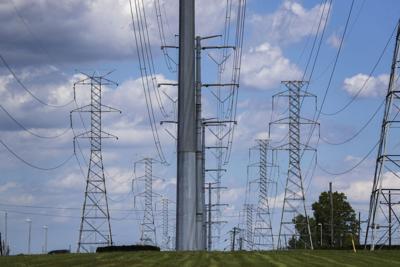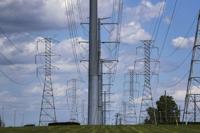Duke Energy is asking state and federal regulators to approve to a merger of its two utility companies providing power to the Palmetto and Tar Heel states.
To get South Carolina regulators to agree, the utility company proposes shuffling money around between customer groups to prevent potential sticker shock to its electric customers in the Upstate.
Duke’s customers in the Pee Dee and eastern North Carolina pay more per megawatt than customers in the Upstate, Charlotte area and western North Carolina. Merging the companies could result in major hikes for customers in South Carolina’s northwest corner, if they’re asked to pay more for a portion of the East’s more expensive power costs.
So, rather than possibly seeing their bills go down, Duke’s wholesale customers — which include South Carolina’s electric cooperatives — will forgo $55 million annually over five years to keep Upstate bills steady. Meanwhile, North Carolina customers would give up $25 million worth of savings annually over six years, according to filings made with the two states’ utility regulators.
That means the merger itself won’t make rates go up or down, according to the company.
Duke Energy has provided power in the Pee Dee for more than a decade, after buying out Progress Energy. Still, Duke operated the Progress territory as a separate entity, with the company saying in 2012 it would merge the two at a later date.
With the Carolinas continuing to rank among the fastest growing states in the nation, according to U.S. Census data, Duke Energy tells regulators now is the time to bring the two service areas under one umbrella.
The merger would cost about $143 million, according to company filings, which doesn’t detail what that includes. But the company says it could produce about $3.2 billion in cost savings by 2038 by negating the need for additional power generation.
That projection does not mean power bills will go down.
Nearly all of that savings would come from the two territories acting as one, instead of performing legal and regulatory gymnastics to get each area’s customers the power they demand, according to the filings.
Since the Progress buyout, Duke claims to have saved customers across both areas upwards of $1 billion by buying fuel in bulk and sharing power generated at plants across both territories.
“But regulations limit further coordination between the two utilities; only a full combination can unlock additional savings,” according to a company statement.
The 2012 agreement lets the two companies share power back and forth to meet spikes in demand as needed. But they each still have to own and operate their own power sources, enough to keep the lights on in the two territories separately.
Furthermore, when power companies begin the multi-year process of constructing a new power plant, they tend to overbuild in anticipation of future growth. Under its current arrangement, if Duke ends up with extra power in the Pee Dee, it can’t simply put that excess — from a power plant paid for by Pee Dee customers — toward meeting demand in the Upstate, and vice versa.
Merging the two areas into one big territory would change that and make Duke’s overall balance sheet look better to investors by not leaving underutilized power sources on the books, according to Duke Energy.
Federal regulations also require the company to have access to reserve power for emergencies and a strategy for what to do if either area’s largest respective power source goes down. If they joined together, they would need backup plans for just one plant — McGuire Nuclear Station near Charlotte — if the reactor couldn’t operate for whatever reason.
Duke’s target date for the merger is Jan. 1, 2027.
The merger is separate from Duke’s earlier requests to increase power rates for all of its 857,000 South Carolina customers.
Power bills for Duke Energy residential customers in the Upstate could go up, on average, by $10.38 a month in March 2026. In the Pee Dee, residential customers could see a $21.66 monthly hike starting February 2026.
That would bring the bill for a so-called average household in the Upstate to about $154 a month.
Electricity would continue to be more expensive in the Pee Dee. The average bill for households there would rise to roughly $167 in March if the request is approved.
Then, if the merger is approved in 2027, Duke said it would gradually shift the two sets of rates until they are evenly matched.
Rates would still be handled differently across state lines, with North Carolina and South Carolina setting those separately under the authority of each state’s regulators.
The merger and rate hikes come on the heels of a massive new energy law signed by Gov. Henry McMaster in May.
Within that legislation is a provision making it easier for power companies to raise rates on an annual basis. Duke has not invoked the new process and has “not yet created a plan as to how and when to use this new tool,” a company spokesman previously told the SC Daily Gazette.
Still, the company highlighted the change as a positive when speaking with investors during its most recent earnings call last week.
At least one group — the South Carolina Policy Council, a think tank that advocates for limited government and free markets — remains skeptical that South Carolinians will benefit.
“They have their own reasons for the merger that are beneficial to them,” said Neil Wolin, a member of the Policy Council’s research team.
But it’s disingenuous to pitch the merger as a benefit and cost savings to customers when they won’t see any of that supposed savings in their utility bills, Wolin said.
“I don’t think South Carolinians are interested in deciphering” the benefits of rate relief amid rate hikes, Wolin continued. “They are getting their electricity bills, and they’re going up. No matter how many times (companies) say rates are going down, they are not. And that is the main issue.”
SC Daily Gazette is part of States Newsroom, a nonprofit news network supported by grants and a coalition of donors as a 501c(3) public charity. SC Daily Gazette maintains editorial independence. Contact Editor Seanna Adcox for questions: info@scdailygazette.com.












